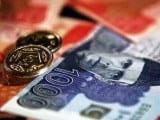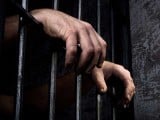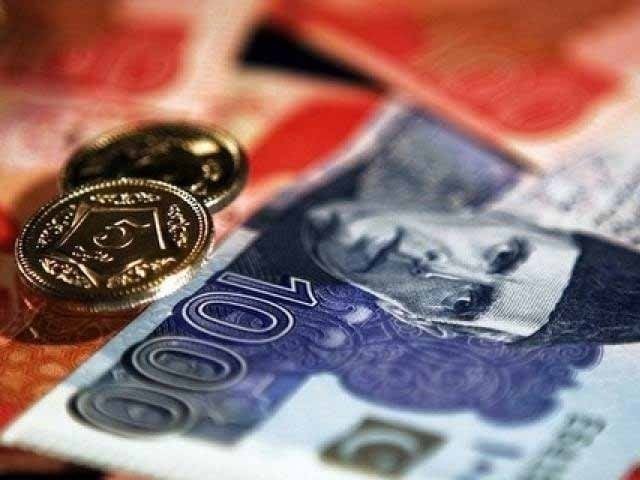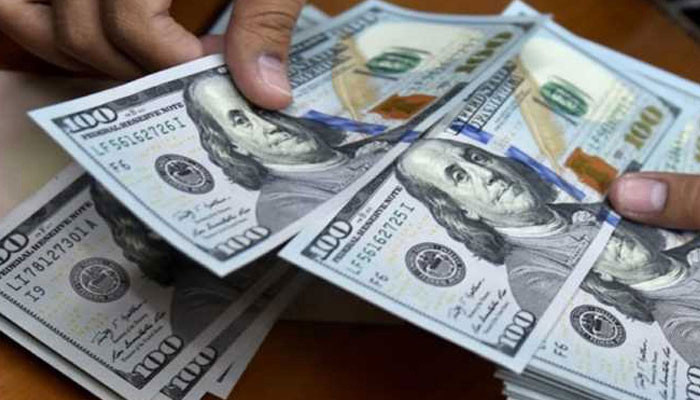
Unfortunately, Pakistan has been unable to develop economically due to political instability since its inception. Photo: File


Karachi: After the mini-budget based on tax measures of one hundred and seventy billion rupees, increase in the prices of petroleum products and gas and one percent increase in GST, the prices of petroleum products have reached the highest levels and due to the excessive increase in gas prices. The pressure on the common man has increased to an unbearable level.
The decision to increase GST from 17% to 18% will make almost all goods out of reach for the poor people. On the other hand, the political instability in the country is deepening, which issues will be resolved at the forum of Parliament. May be, they are going to courts on a daily basis, this approach is tantamount to deviating from democratic traditions.
Most importantly, there is a consensus that GDP growth this year will be below 2.5%, stagnation has reached dangerous levels, we have inflation, food prices and employment. is affecting The continuous decline in purchasing power is creating huge financial difficulties for the poor and people with fixed incomes.
Poverty-stricken Pakistanis have become victims of more poverty and these conditions have been taken advantage of by high street vendors and everything has been made many times more expensive only on this basis, since the effectiveness of local and provincial governments has always been weak, so inflation has increased. But who could stop it from arriving?
It is true that this is the second major wave of inflation that the country is going through right now after the inflation that happened in the 70s. In this too, the rate of inflation in food items is more than 34 percent while currently Pakistan is the sixth country in Asia where the increase in the rate of inflation is very fast.
The current inflation rate of 25 percent is still being reported as low and in reality it is 30 percent or more, if Pakistan implements these reforms as demanded by the IMF, it will be even more than 35 percent. will go up and if the IMF program is not restored, the inflation in the country will be 50 percent or more. The answer is not coming from any side and neither is the people being satisfied. This is because no one has an answer to this question.
It is being said for the last seventy five years that the economic situation of the country is very critical, the country is going through a critical situation, it is surprising that the critical situation is not ending for the last 75 years, whoever comes to rule has his own condition. So it does not remain delicate and it flourishes well, rather it adorns its seven generations to come, but there is no one to ask them?
The most important thing is that whoever the political party is, if you hold anyone accountable, then democracy is in danger, the country is bankrupt, and you are saved by saying words like that.
Claims of public welfare have their place but it is a fact that the privileges given to elites in Pakistan are one of the biggest obstacles due to which it is not possible to get real relief to the people.
According to the 2021 National Human Development Review (NHDR) of the United Nations Development Program (UNDP), nearly 6 percent of Pakistan’s Gross National Product (GDP) is due to privileges given to elites. It just happens. This amount is around seventeen and a half billion dollars.
The three groups identified as the most privileged in the review are the business class, the richest one percent and the landlords, respectively. According to the report, the size of the concessions taken by the business community is about five and a half billion dollars.
The report shows that the richest one percent owns nine percent of the country’s gross income, while the landlords, who make up one-tenth of one percent of the country’s population, own twenty-two percent of the arable land.
The contents of this report suggest that there are clearly two states within Pakistan, one consisting of the middle, poor and backward classes and the other one which not only has control of resources but also various forms of power and authority. They are under influence, that’s why no one can spoil them even if they want to.
One aspect of the facts about the unfair distribution of wealth and resources brought to light in NHDR is that 20 percent of the rich people in Pakistan have almost half (fifty six percent) of the country’s income and their In contrast, 20% of the poor share only 7% of the total income.
This is the reason that people belonging to rich and poor classes in Pakistan live in separate worlds even though they are geographically residents of the same country and these two worlds are so different from each other that the illusions of people belonging to one class I also cannot understand what are the problems of people belonging to other castes. Statistics show that the number of middle class in Pakistan is continuously decreasing.
When the vast majority of the people do not have bread to eat and medicine for treatment, and a small number of people are living with all kinds of facilities and comforts, the continuous feeling of deprivation gives rise to a situation that makes one It cannot even be imagined.
The elite enjoy tax-free perks, perks, palatial residences, free amenities, an army of employees, and even get expensive plots in prime areas for free or at discounted rates. Since independence, there has been no serious attempt at institutional reforms to democratize the state system, which has failed miserably to play its role.
This is also the main reason for our economic subjugation to the International Monetary Fund (IMF) and others. Due to the continuous failure of the ruling elite, we have failed to achieve political stability and sustainable economic growth. The twin threats of mounting debt and fiscal deficit testify to our continued fiscal mismanagement.
The country survives on IMF loans due to its continued failure to tax the rich and to curb the exorbitant spending that now accounts for about 25 percent of GDP. Taking into consideration all this fact-based situation, Pakistani people are running a top trend on social media, that the privileges of the privileged class should be reduced.
To get rid of the dire economic situation of the country, the government should actively mobilize the Price Control Authority and the Competition Commission to deal with hoarders and profiteers. This includes daily food items and industrial products, government officials who have government vehicles and government petrol, their petrol concessions should be reduced.
The facility of free electricity should be withdrawn from all government officials, the salaries of government officials receiving seven-figure salaries should also be reduced, the salaries of the members of national and provincial assemblies who reach the assemblies after spending crores of rupees in the election campaign should be reduced. , air tickets, free treatment and other facilities should be suspended immediately.
Privileges of federal and provincial ministers and advisers should also be suspended, an amnesty scheme should be brought to withdraw billions of dollars kept in houses, 65% of the population of our country depends on agriculture. Therefore, fertilizer, seeds, agricultural drugs and machinery should be provided to the farmer in easy installments. Electricity, diesel and water should be provided at minimum rates. Along with this, the purchase of the crop in cash and at the most appropriate official rate should be ensured so that the role of the middleman ends.
If the government really wants to give relief to the poor and middle class, it should consider these suggestions because the biggest problem of this country has been that the elite class is privileged and the sacrifice is taken from the poor people. Must end.
Economic development is possible only with political stability, but unfortunately, Pakistan has failed in economic development due to political instability since the beginning. Pakistan can become a better economic country by taking measures like proper utilization of resources, proper check and balance to reduce corruption, long term planning, proper and regular elections.
If the government, opposition and all the state institutions come together and decide to achieve political stability, then the time is not far that we will join the list of peaceful and developed countries.
(function(d, s, id){
var js, fjs = d.getElementsByTagName(s)[0];
if (d.getElementById(id)) {return;}
js = d.createElement(s); js.id = id;
js.src = “//connect.facebook.net/en_US/sdk.js#xfbml=1&version=v2.3&appId=770767426360150”;
fjs.parentNode.insertBefore(js, fjs);
}(document, ‘script’, ‘facebook-jssdk’));
(function(d, s, id) {
var js, fjs = d.getElementsByTagName(s)[0];
if (d.getElementById(id)) return;
js = d.createElement(s); js.id = id;
js.src = “//connect.facebook.net/en_GB/sdk.js#xfbml=1&version=v2.7”;
fjs.parentNode.insertBefore(js, fjs);
}(document, ‘script’, ‘facebook-jssdk’));



